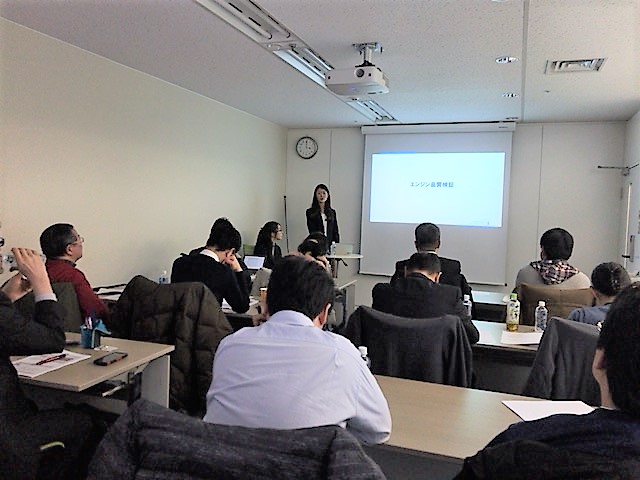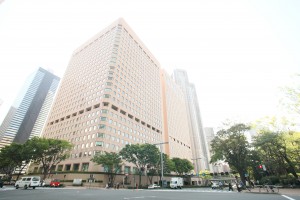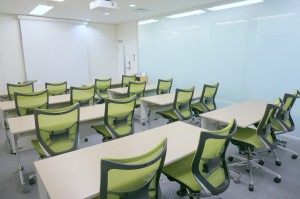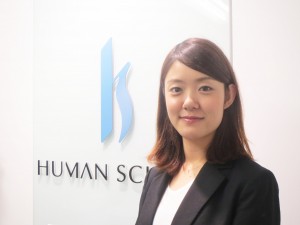This seminar has closed for applications.
On August 21, 2019 (Wednesday) at Human Science Co., Ltd. (Shinjuku, Tokyo)
Trados/Memsource/memoQ
Translation Support Tool Implementation and Operation Seminar to Maximize Cost Effectiveness
will be held.
Overview
More and more companies are introducing translation support tools (CAT tools) such as Trados Studio, Memsource, and memoQ to improve translation productivity and reduce translation costs.
One of the challenges in introducing such tools is the cost-effectiveness. For example, do you have any concerns like the ones below?
・Although translation support tools have been introduced, they have not achieved the expected cost and labor reduction effects...
・I cannot decide to implement translation support tools because I do not understand the cost-effectiveness...
In this seminar, we will introduce two effective approaches to maximize the cost-effectiveness of translation support tools.
1. Optimization of the Translation Workflow
▼Recommended for people like this.
・The degree of utilization of translation processes and tools varies by person
・The creation and management of translation memories are left to outsourced translation companies and translators, and are not being capitalized as assets.
・Different expressions are mixed within the translation memory, so the translated text cannot be reused as is.
②Standardization of Japanese Documents
▼Recommended for people like this.
・The writing in Japanese is unclear or contains mistakes, which is causing delays in the translation work.
・Due to duplication in the Japanese text, the volume of translation has increased.
・Due to the lack of consistency in terminology and notation in the Japanese text, inconsistencies have also arisen in the translation.
By implementing these approaches, you will be able to effectively realize the greatest benefit of introducing translation support tools, which is the accumulation and reuse of translation memories (past translation assets).
————————————————————————————————————————-
In this seminar, we will introduce the key points of each approach and examples of improvements.
Case Study 1: Industrial Equipment Manufacturer - 20% Reduction in Translation Costs
Optimization of translation workflow for manuals and specifications
Case Study 2: Robot Manufacturer - 50% Reduction in Translation Effort
Standardization of Japanese documents for the translation of user manuals and specifications
If you feel the need to improve translation operations, please join us!!
After the seminar, we will offer individual consultations as needed.
Please check the "Request for Individual Consultation" box on the application form.
*This seminar is expected to overlap approximately 80% with the "Learn from Case Studies! Translation Cost and Labor Reduction Know-How Seminar" held in June 2019, and about 50% with the "Trados/Memsource/memoQ Translation Memory and Glossary Creation Know-How Seminar" held in April 2019. Thank you for your understanding.
Past Seminar Highlights

Event Details
- Date and Time
-
- August 21, 2019 (Wednesday) 14:00 - 16:00
- *Individual Consultation (for those who wish to participate): 4 PM -
- * Reception starts at 1:45 PM ~
- Location
- Human Science Corporation Conference Room
2-7-1 Nishi-Shinjuku, Shinjuku-ku, Tokyo, 13th Floor, Odakyu Dai-ichi Seimei Building >>Access


- Cost
- Free
- Capacity
-
- 14 people
- * If the number of participants exceeds the limit, a lottery will be held.
Application
- Please apply for participation in this seminar using the form below.
- We will get back to you from our representative.
Application Deadline: August 16, 2019 (Friday)
- *We allow up to two participants from the same company.
- *There is a possibility of cancellation if the minimum number of participants is not reached.
- We will contact you about one week in advance in case of cancellation.
- *If there are many participants, a lottery will be held.
Program
Lecture: 75 minutes
- ・Common challenges in the introduction and operation of translation support tools
- Cost-effectiveness considerations
- ・Translation Memory・Glossary Creation・Approach for Maintenance・Key Points
- Approaches and examples to maximize cost-effectiveness
Q&A: 10 minutes
Individual Consultation (First 2 Applicants)
*This seminar is expected to overlap approximately 80% with the "Learn from Case Studies! Translation Cost and Labor Reduction Know-How Seminar" held in June 2019, and about 50% with the "Trados/Memsource/memoQ Translation Memory and Glossary Creation Know-How Seminar" held in April 2019. Thank you for your understanding.
Eligible Persons
- ・Individuals involved in translation work for documents (user manuals, manuals, specifications, technical materials, materials for distributors, etc.) in the development department, manuals, and translation department of manufacturers.
- For those considering improving productivity, efficiency, and standardization in the translation/manual creation process.
- ・For those facing challenges in managing and operating translation support tools
- - Those considering the introduction of translation support tools
- Participation from competing companies and individuals may be declined.
- *We allow up to two participants from the same company.
Instructor

Tokuda Megumi
- ・Technical Writer / Localization Engineer / Machine Translation Consultant
- ・Engaged in projects for creating documentation for overseas markets, from Japanese manual creation to English and multilingual expansion
- ・As a machine translation consultant, we also provide consulting for the introduction of machine translation and process development for Japanese companies.
- ・Since 2013, has participated as a speaker in various domestic and international events such as JTF, AAMT, TAUS, and TC Symposium
- ・2014 AAMT*2 "Mastering Machine Translation - For Improving Quality and Productivity"
- ・2015 TAUS*3 "Possibilities of Utilizing Japanese MT Engines in Industrial Translation"
- ・2015 JTF *1 Translation Festival "Best Practices for Topic Document Translation Revealed from DITA and CMS Implementation Case Studies"
- ・2017 Japan Tech Center "Improving the Quality of Technical Documents for Overseas"
- ・2017 Nikkan Kogyo Shimbun "Improving Quality and Productivity of Technical Documents for Overseas Markets"
- ・2018 TC Symposium "Learning from 10 Companies! - Challenges and Solutions in Implementing Machine Translation"
- *1 Japan Translation Federation
- *2 Asia-Pacific Machine Translation Association
- *3 Translation Automation Users Society
- *4 Organized by the General Incorporated Foundation Technical Communicators Association

Yuriko Sawada
- ・Japanese-English and Multilingual Translation Coordinator
- ・As a localization specialist, engaged in translation projects from Japanese to English and multilingual versions.
- Responsible for the introduction of machine translation, quality evaluation and verification of multiple engines, and information exchange with engine vendors.
- Involved in the standardization of English quality and the creation of style guides for companies, as well as conducting research and verification of source texts that are easy to machine translate.
- ・Since 2014, regularly held seminars on "Mastering Machine Translation" hosted by Human Science
- ・2015 JTF *1 Translation Festival "Best Practices for Topic Document Translation Revealed from DITA and CMS Implementation Case Studies"
- ・2018 TC Symposium "Learning from 10 Companies! - Challenges and Solutions in Implementing Machine Translation"
- *Japan Translation Federation



